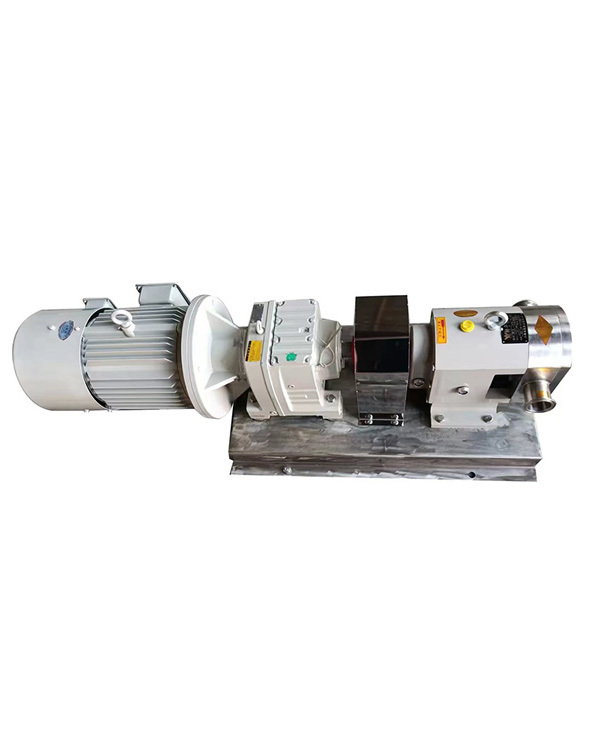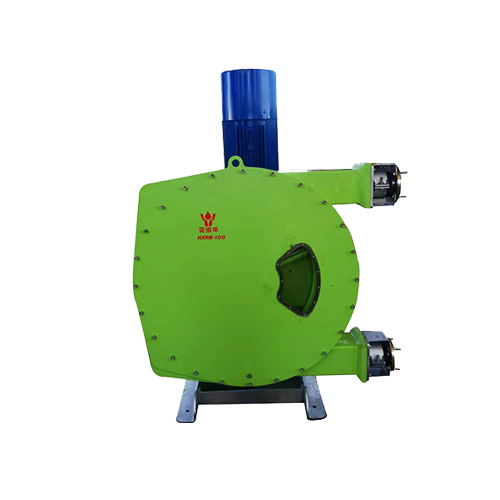Optimizing Syrup Production: The Essential Role of Rotary Lobe Pumps in Enhancing Efficiency
Jul 17,2025

Optimizing Syrup Production: The Essential Role of Rotary Lobe Pumps
Table of Contents
- Introduction to Syrup Production and Pump Technology
- Understanding Rotary Lobe Pumps
- Advantages of Using Rotary Lobe Pumps in Syrup Production
- Applications of Rotary Lobe Pumps in the Syrup Industry
- Maintaining Pump Efficiency and Performance
- Best Practices for Optimizing Syrup Production
- Cost-Benefit Analysis of Rotary Lobe Pumps
- Future Trends in Pump Technology for Syrup Production
- Frequently Asked Questions
- Conclusion
Introduction to Syrup Production and Pump Technology
In the rapidly evolving landscape of food processing, syrup production stands out as a vital industry. With the rise in demand for high-quality syrups in various applications—from beverages to culinary uses—the need for efficient production methods has never been more critical. At the heart of this optimization lies the technology behind **pumping systems**, particularly **rotary lobe pumps**. These pumps have become indispensable due to their unique design and functionality, which enable them to handle viscous fluids without compromising quality.
Understanding Rotary Lobe Pumps
Rotary lobe pumps are positive displacement pumps characterized by two or more lobes that rotate inside a housing, effectively moving fluid through the pump. The interaction between the lobes is what creates suction and pushes the fluid forward, making them ideal for transferring thick and viscous products like syrups.
###
Key Features of Rotary Lobe Pumps
1. **Gentle Handling of Fluids**: Rotary lobe pumps maintain the integrity of sensitive fluids, ensuring that the syrup's taste and texture remain unchanged.
2. **High Efficiency**: These pumps deliver a consistent flow rate, reducing the need for multiple pumps and minimizing energy consumption.
3. **Versatility**: Designed to handle a variety of flow rates and product viscosities, rotary lobe pumps can be used in different stages of syrup production.
4. **Easy Maintenance**: With fewer moving parts and a modular design, these pumps allow for quicker maintenance and reduced downtime.
Advantages of Using Rotary Lobe Pumps in Syrup Production
Embracing rotary lobe pumps in syrup production offers numerous advantages that can significantly impact the overall efficiency and quality of the final product.
###
Enhanced Flow Control
Rotary lobe pumps provide superior flow control capabilities, allowing manufacturers to adjust flow rates as needed. This flexibility is crucial in syrup production, as varying recipes may require different pumping speeds.
###
Minimized Shear Force
One of the most significant benefits of rotary lobe pumps is their ability to minimize shear force. This feature is essential for syrup production, as excessive shear can alter the syrup's viscosity and flavor profile.
###
Improved Cleanliness and Hygiene
In the food industry, maintaining hygiene is paramount. Rotary lobe pumps are designed with smooth surfaces and fewer crevices, making them easier to clean and sanitize, thus meeting stringent food safety standards.
###
Durability and Longevity
Investing in rotary lobe pumps means opting for a durable solution. These pumps are constructed from robust materials that withstand the rigors of syrup production, ensuring long-term functionality and reducing replacement costs.
Applications of Rotary Lobe Pumps in the Syrup Industry
Rotary lobe pumps find extensive applications in syrup production, catering to various segments of the industry.
###
1. Beverage Industry
From soft drinks to alcoholic beverages, rotary lobe pumps safely transfer high-viscosity syrups without altering their composition. This versatility ensures consistency in flavor and quality.
###
2. Food Processing
In food processing, these pumps are utilized for transferring syrups, sauces, and purees, facilitating smooth production lines and maintaining product integrity.
###
3. Confectionery Production
In the confectionery sector, rotary lobe pumps are employed to handle sticky syrups used in candies and coatings, streamlining the manufacturing process.
###
4. Pharmaceutical Applications
Pharmaceutical companies use rotary lobe pumps for transferring viscous medicinal syrups, as they provide precise control over the flow and dosing of active ingredients.
Maintaining Pump Efficiency and Performance
To ensure that rotary lobe pumps function optimally, regular maintenance and monitoring are essential. Here are key strategies to maintain pump efficiency:
###
Routine Inspections
Conducting regular inspections of the pump's components can help identify wear and tear early, preventing potential failures that could disrupt syrup production.
###
Proper Lubrication
Keeping the moving parts well-lubricated reduces friction and wear, extending the pump's lifespan.
###
Adhering to Manufacturer Guidelines
Following the manufacturer's maintenance schedule and guidelines is crucial for ensuring the pump operates within its designed parameters.
###
Cleaning Protocols
Establishing rigorous cleaning protocols prevents contamination and maintains the quality of the syrup being produced, particularly in food processing environments.
Best Practices for Optimizing Syrup Production
To maximize the efficiency of syrup production using rotary lobe pumps, businesses should consider the following best practices:
###
1. Implementing Automation
Integrating automation in the syrup production line can enhance precision in pumping and reduce human error, leading to better consistency in syrup quality.
###
2. Conducting Regular Training
Training staff on the proper operation and maintenance of rotary lobe pumps ensures optimal performance and minimizes the chances of costly errors.
###
3. Monitoring Quality Control
Establishing a rigorous quality control process helps ensure that the final syrup product meets industry standards and customer expectations.
###
4. Optimizing Ingredients
Using high-quality ingredients and optimizing formulations can significantly enhance syrup quality, making the most of the advantages provided by rotary lobe pumps.
Cost-Benefit Analysis of Rotary Lobe Pumps
When contemplating the adoption of rotary lobe pumps for syrup production, a cost-benefit analysis is vital to understanding their long-term value.
###
Initial Investment vs. Long-Term Savings
While the initial investment in rotary lobe pumps may be higher than that of traditional pumping systems, the long-term savings in maintenance, energy efficiency, and reduced product waste often justify the expense.
###
Impact on Production Efficiency
The increased efficiency and reliability of rotary lobe pumps can lead to higher productivity levels, enabling businesses to scale operations without significant additional costs.
###
Enhanced Product Quality
Investing in rotary lobe pumps can enhance product quality, leading to improved customer satisfaction and potentially higher sales.
Future Trends in Pump Technology for Syrup Production
As technology continues to evolve, the future of rotary lobe pumps in syrup production looks promising. Emerging trends include:
###
1. Smart Pump Technology
The integration of IoT (Internet of Things) technology in pumps allows for real-time monitoring, predictive maintenance, and automated adjustments, enhancing efficiency further.
###
2. Sustainability Practices
As industries shift towards more sustainable practices, pumps designed with eco-friendly materials and energy-efficient operations will become increasingly important.
###
3. Advanced Materials
The development of advanced materials that can withstand harsher conditions and reduce wear will enhance the longevity and reliability of rotary lobe pumps.
Frequently Asked Questions
###
1. What are rotary lobe pumps primarily used for?
Rotary lobe pumps are primarily used for transferring viscous fluids in various industries, including food processing, pharmaceuticals, and beverages.
###
2. How do rotary lobe pumps differ from other types of pumps?
Unlike centrifugal pumps, which rely on fluid velocity, rotary lobe pumps use positive displacement, making them ideal for handling thick and viscous products.
###
3. Can rotary lobe pumps be used for both hot and cold syrups?
Yes, rotary lobe pumps can handle a wide range of temperatures, making them suitable for both hot and cold syrup production processes.
###
4. What maintenance is required for rotary lobe pumps?
Regular inspections, lubrication, and adherence to cleaning protocols are crucial for maintaining the efficiency and longevity of rotary lobe pumps.
###
5. Are rotary lobe pumps energy-efficient?
Yes, rotary lobe pumps are designed for high efficiency, reducing energy consumption while maintaining a consistent flow rate.
Conclusion
In summary, rotary lobe pumps play a pivotal role in optimizing syrup production through their unique advantages, including enhanced efficiency, minimal shear force, and ease of maintenance. By understanding their functionality and implementing best practices, manufacturers can significantly improve their production lines. As technology advances, the future of rotary lobe pumps looks bright, promising even greater efficiencies and sustainability in syrup manufacturing. Embracing this technology not only enhances operational workflows but also elevates product quality, ultimately leading to greater customer satisfaction and business success.
Contact Us
E-mail :
sales@yaquanpump.com
service@yaquanpump.com
Phone/WhatsApp:
+44 7301702546
+63 9452052801
Address:
Room B208, Building 2, North Hongqiao Songri Center, No.215 Gaochao Road, Jiading District, Shanghai









